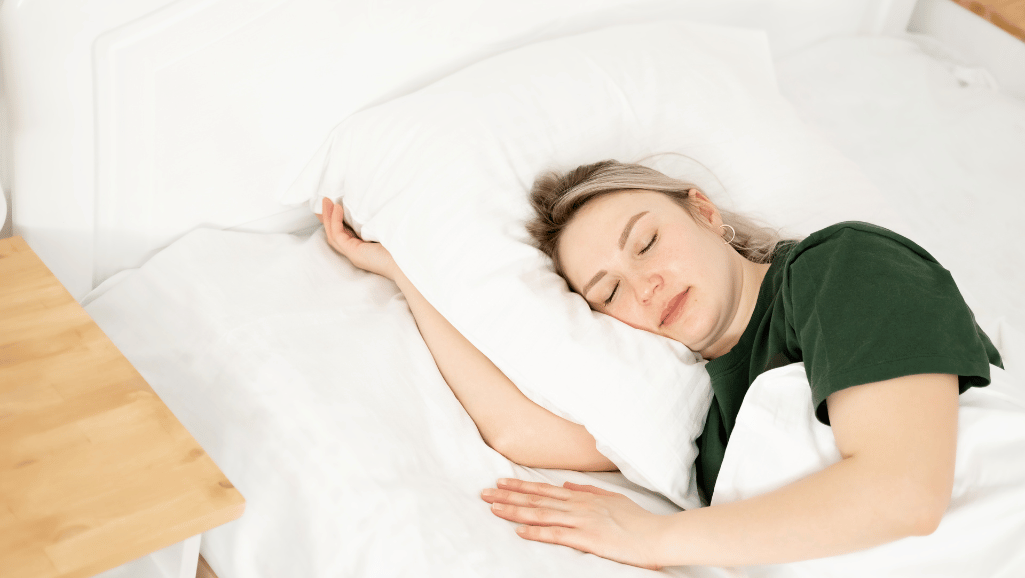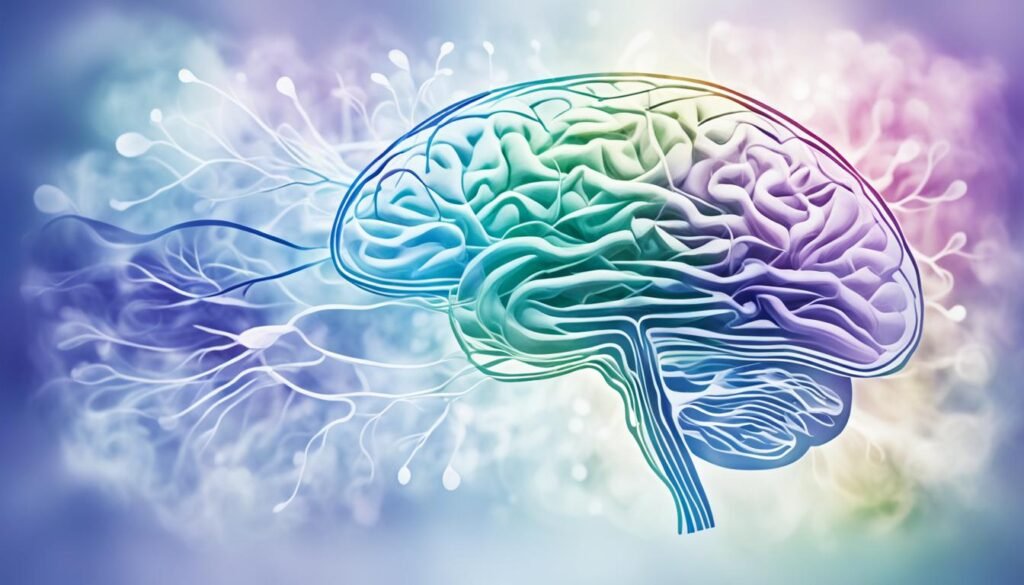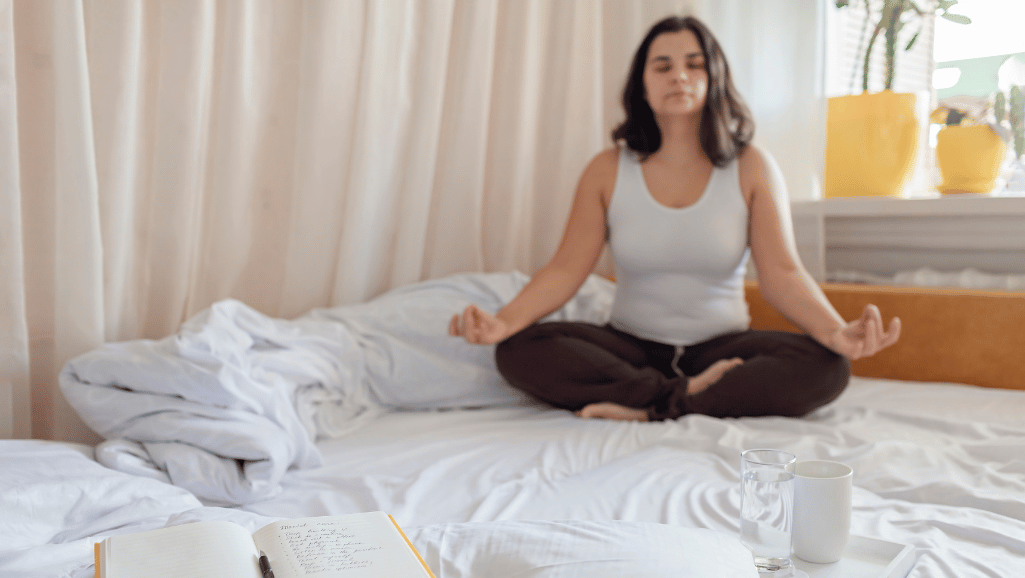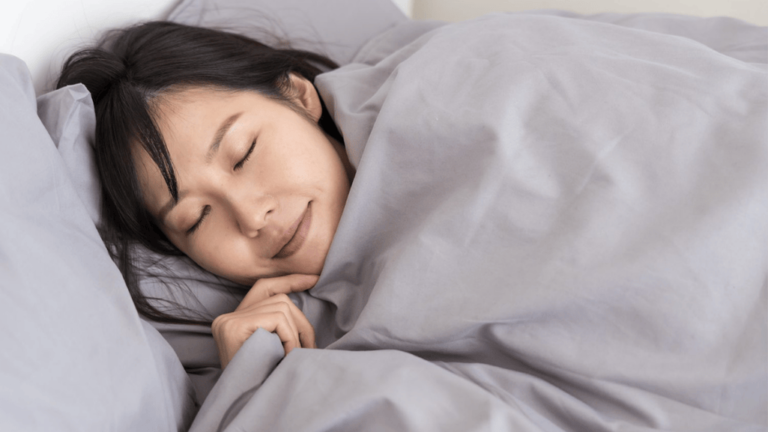Understanding sleep duration is key to a refreshing night’s sleep. It’s vital for your health and wellbeing. But, the right amount of adequate rest changes throughout your life.
For people aged 18–60, the CDC suggests at least 7 hours of sleep hours each night. This includes important light and deep sleep phases. Deep sleep, making up about 25% of your nightly rest, is crucial for fixing tissues and boosting your immune system.
If you’re worried about your sleep time, talk to a healthcare expert. They can offer valuable advice.
Key Takeaways
- Adults should aim for at least 7 hours of sleep per night for optimal health.
- Deep sleep is critical and should account for about 25% of total nightly rest.
- Sleep duration and quality requirements vary greatly among different age groups.
- Recognizing symptoms of sleep problems early in children can prevent negative health outcomes.
- Creating a consistent sleep environment and routine can greatly improve sleep quality.
- Consult a healthcare provider if experiencing chronic sleep-related issues.
- Recognizing the essential role of deep sleep for bodily restoration can motivate healthy sleep time habits.
Understanding the Stages of Sleep
Exploring sleep architecture is key to understanding our overall health and sleep quality. Our bodies cycle through different sleep stages each night, including NREM and REM stages. This cycle is vital for our cognitive and physical health.
NREM Sleep: Light, Deep, and Deeper Stages
NREM sleep has three stages: Stage 1 (N1), Stage 2 (N2), and Stage 3 (N3). Each stage has unique characteristics and helps in different ways. N1 is a light sleep stage that lasts 1-7 minutes, marking the start of deeper sleep.
N2 is the longest stage, taking up about 45% of our sleep time, lasting 10-25 minutes per cycle. Here, brain waves slow down as our body starts to repair itself. The deepest stage, N3, also known as deep sleep, is crucial for recovery. It lasts 20-40 minutes and helps with muscle repair, memory consolidation, and hormonal balance.
REM Sleep: Dreams and Brain Activity
After NREM sleep, we enter REM sleep. This stage is marked by high brain activity, rapid eye movements, and vivid dreams. REM stages can last from 10 to 60 minutes and make up about 25% of our sleep. It’s here that we process emotions and memories.
Understanding circadian rhythms helps keep our sleep cycle balanced, ensuring we get enough REM sleep.
The Sleep Cycle: Cycling Through Stages
A full sleep cycle, with all four stages, lasts 90 to 120 minutes. We should aim for four to five cycles per night. The first cycle often has shorter REM periods, but they get longer in later cycles.
This pattern is affected by age, sleep habits, and lifestyle choices like alcohol use. These can change the sleep cycle and reduce REM sleep early on.
Understanding sleep stages and cycles shows how crucial a consistent sleep pattern is. It matches our natural circadian rhythms and supports our brain and physical health. Getting a good mix of NREM and REM sleep each night is key to making the most of sleep.
Recommended Sleep Duration by Age Group
Following expert sleep guidelines is key for staying healthy at every life stage. From babies to adults, the amount of sleep needed changes a lot. It shows how different age groups need different amounts of sleep. Knowing and following these guidelines can really boost your mental, emotional, and physical health.
Infants and Toddlers: 11-17 Hours
Newborns, from 0 to 3 months, should get 14 to 17 hours of sleep daily. Some might sleep as little as 11 hours without problems. Toddlers, from 12 to 24 months, need 11 to 14 hours, including naps. These lots of sleep requirements help them grow fast in mind and body.
Children and Teens: 8-13 Hours
As kids get older, they need less sleep. Preschoolers, 3 to 5 years old, need 10 to 13 hours, maybe with naps. School kids, 6 to 12 years old, should sleep 9 to 12 hours. Teens, in a big growth phase, should get 8 to 10 hours of sleep. This helps them focus better and stay mentally healthy.
Adults: 7-9 Hours
Adults, 25 to 64 years old, should aim for 7 to 9 hours of sleep each night. Good sleep helps with thinking, feeling emotions, and staying physically healthy. After 65, older adults need 7 to 8 hours of sleep, fitting their changing bodies.
In summary, sticking to sleep guidelines for your age group is crucial for health and well-being. It also lowers the risk of chronic diseases. By understanding and following these tips for you and your family, you can live a better life and feel more energetic.
The Importance of Deep Sleep
Deep sleep is key for physical restoration and thinking clearly. It’s the third stage of non-REM sleep. Here, the body fixes tissues, releases hormones, and gets ready for the next day. This makes deep sleep vital for staying healthy and sleeping well.
Physical Restoration and Repair
About 13 to 23 percent of an adult’s sleep is deep sleep. It’s crucial for staying healthy. This stage helps with tissue growth and repair, immune system work, and hormone release. These processes are important for staying young and full of energy.
Cognitive Function and Memory Consolidation
Deep sleep also boosts brain health. It helps turn daily events into memories. This is key for learning and remembering things. But, as people get older, they sleep less deeply and for shorter periods.
Not getting enough deep sleep can lead to serious health issues like Alzheimer’s and Parkinson’s. So, it’s important to sleep well to keep your mind sharp and your life fulfilling. For more info on deep sleep, check out The Sleep Foundation.
| Age Group | Average Deep Sleep Time | Recommended Sleep Duration |
|---|---|---|
| Below 30 | 2 Hours | 7-9 Hours |
| 65 and above | 0.5 Hours or less | 7-8 Hours |
REM Sleep and Dreaming
REM sleep is key to dreaming and emotional processing. It’s a big part of our sleep cycle. It’s not just about dreams; it’s also vital for our mental and emotional health.
Most adults need about two hours of REM sleep each night. This stage makes up 20% to 25% of our sleep. The first REM period starts 60 to 90 minutes after falling asleep. These cycles repeat every 90 to 120 minutes. The REM sleep time gets longer in the second half of the night.
Research shows that dreams can be very emotional. About 65% of dreams make us feel sad, scared, or angry. But, 20% of dreams make us feel happy or excited. This helps us stay emotionally balanced.
Children and adults sleep differently. Babies up to 12 months old spend half their sleep in REM, which helps them grow fast. Adults only spend about two hours in REM sleep for an 8-hour night.
- Babies and young children: Extensive REM sleep aids rapid developmental changes.
- Adults: Consistent REM cycles contribute to emotional and cognitive health.
REM sleep has a strong bounce-back effect. If we don’t get enough REM sleep, we might sleep more later to catch up. This shows how important REM sleep is for our sleep balance.
REM sleep and dreaming are still mysteries. But, they’re linked to memory, learning, and emotional health. This makes them crucial for good sleep health.
Sleep Quality vs. Sleep Quantity
Many people focus on how long they sleep, but how well they sleep is just as important. Good sleep means sleeping without interruptions, in a quiet and dark room, and without any disturbances. Both the length and quality of sleep are key for feeling good.
Factors Affecting Sleep Quality
Many things can affect how well you sleep. Making your bedroom sleep-friendly is a big step. This means keeping it quiet, dark, and cool, and avoiding screens that can mess with your sleep cycle. What you do during the day, like drinking caffeine or eating certain foods, can also affect your sleep.
Signs of Poor Sleep Quality
Poor sleep quality can show in many ways. If you find it hard to fall asleep, wake up a lot at night, or feel tired even after sleeping a lot, you might need to work on your sleep habits. The way you wind down before bed and your sleep environment can greatly impact your rest.
Understanding Sleep Statistics: Studies show how our sleep has changed over time, thanks to our lifestyle and technology. It’s important to adapt to these changes to get better sleep.
| Impact of Sleep Environment | Signs of Poor Sleep Quality |
|---|---|
| Restfulness reduced by electronic screens | Regular awakenings during the night |
| Negative influence of irregular routines | Taking over 30 minutes to fall asleep |
| Improvement with ideal temperature and lighting | Daytime fatigue despite sufficient hours in bed |
| Disturbances from external noises | Sleeping less than 85% of the time in bed |
Improving your sleep can start with a regular sleep schedule and better bedtime habits. By focusing on both your sleep space and your daily routines, you can move towards sleep that’s restful and refreshing.
Consequences of Sleep Deprivation
The impact of sleep deprivation is huge and affects many people. It brings serious health risks and problems with thinking. We will look into how not getting enough sleep harms our health and talk about ways to fix it.
Health Risks and Chronic Conditions
Sleep deprivation is a big health issue. It’s linked to many chronic conditions like heart disease, kidney disease, high blood pressure, diabetes, and stroke. About one-third of adults in the U.S. don’t get the recommended seven hours of sleep each night, which can lead to these serious problems.
Understanding how sleep affects obesity and metabolic diseases is key. Not sleeping well can make you more likely to be obese or have type 2 diabetes. It changes hormone levels that control hunger and appetite. The CDC says about 1 in 3 adults don’t get enough sleep daily, showing how common sleep problems are.
Cognitive Impairment and Mood Disturbances
Not sleeping well harms our brains too. It can make us irritable, worse at solving problems, and forgetful. About 40% of adults say they fall asleep during the day sometimes because they’re not rested enough. This could mean they have sleep disorders.
Bad sleep can also make us feel depressed or anxious. Not sleeping well can make these feelings worse, creating a cycle of poor sleep and mood problems.
Also, not sleeping enough can cause big accidents, like car crashes or industrial disasters. Even big events like nuclear reactor meltdowns have happened because of it. This shows we need to take sleep seriously for our safety and health.
To fix sleep deprivation, we need to work together. We must promote better sleep habits and spread health awareness. It’s important for people to know the signs of sleep disorders and get help early. This can reduce risks and improve our lives.
Optimizing Your Sleep Duration
Getting enough sleep is key for both your body and mind. It’s important to have a good bedtime routine, a sleep-friendly environment, and ways to manage stress. These steps help keep you healthy and in tune with your natural sleep patterns.
Establishing a Consistent Sleep Schedule
Sticking to a regular sleep schedule helps keep your body’s clock in sync. Studies show that regular sleep habits lead to better sleep quality over time. By going to bed and waking up at the same time every day, your body gets used to it, making sleep more restful.
This habit also helps you sleep deeper and wake up feeling great. It’s a simple way to improve your sleep and start your day feeling refreshed.
Creating a Sleep-Conducive Environment
Creating the right sleep space is important. Think about the noise, temperature, and light in your bedroom. A study found that a quiet, cool, dark room helps you sleep better.
Choosing the right mattress is also key. A medium-firm mattress is often best for support and comfort. Together, these factors make it easier to fall asleep and stay asleep all night.
Managing Stress and Relaxation Techniques
Stress can mess with your sleep. Using relaxation methods like meditation or yoga before bed can make a big difference. A calming routine before sleep also helps you sleep better and longer.
Managing stress not only gets your mind ready for sleep but also helps your body relax. This leads to a more restful night’s sleep.
Sleep Disorders and Their Impact on Sleep Duration
Sleep disorders like insomnia and sleep apnea greatly affect sleep quality and health. They disrupt sleep by causing problems with breathing and breaking up restful sleep. This is important to know to help treat these issues better.
Insomnia and Sleep Fragmentation
About a third of adults have insomnia, which really messes with their sleep. People with insomnia have trouble falling or staying asleep. Over 40% of them have severe symptoms for more than five years.
Women are more likely to have insomnia than men, with 17.6% affected. This condition makes people tired during the day and can lead to serious health problems if not treated.
Sleep Apnea and Breathing Disturbances
Sleep apnea is a big problem because it stops breathing during sleep. It’s a big risk for people with diabetes, affecting about 51%. This lack of oxygen makes sleep poor and increases the chance of heart disease and other health problems.
| Condition | Prevalence | Impact on Sleep Quality |
|---|---|---|
| Insomnia | 33% adult population | Highly disrupts sleep, causing severe daytime dysfunction |
| Sleep Apnea | 51% among diabetics | Causes intermittent breathing disturbances leading to poor sleep |
| Restless Leg Syndrome (RLS) | 47% diabetic patients | Results in sleep fragmentation |
| Periodic Leg Movements (PLMD) | 40 per 100,000 persons | Induces repeated awakenings and disrupted sleep cycles |
| Narcolepsy | 44.3 per 100,000 individuals | Causes excessive daytime sleepiness and fragmented night-time sleep |
Fixing these sleep disorders is key to better sleep. We need to find out why they happen and use the right treatments. Teaching people about the effects of bad sleep can help make sleep health a priority in healthcare. This could lessen the impact of these common problems.
The Role of Naps in Meeting Sleep Needs
Napping is a short sleep period during the day to help fill any sleep gap. It’s useful for those who can’t get enough sleep at night because of their lifestyle or health. Napping can make you feel more alert and perform better.
Napping has many benefits like making you feel relaxed, less tired, and more alert. These short sleeps can help your overall well-being. But, they should be short to avoid messing up your night’s sleep and to avoid feeling groggy after waking.
- Recommended nap duration is typically 10 to 20 minutes to retain the benefits without any major drawbacks.
- Napping after 3 p.m. is advised against as it may affect nighttime sleep quality.
Daytime sleep is especially helpful for some people. For example, younger adults can handle longer naps better. Also, people who are very tired or work shifts may find napping helps them stay focused.
| Nap Duration | Effect |
|---|---|
| Up to 20 minutes | Boosts alertness and performance without severe sleep inertia |
| 30 to 60 minutes | May lead to inertia; risk of type 2 diabetes and non-alcoholic fatty liver disease in prolonged habits |
| 90 minutes | Recommended for shift workers; associated with increased risk of high blood pressure |
But, don’t rely too much on napping. It should not replace the need for good night’s sleep. Napping helps with short-term sleep needs but isn’t a long-term fix for lack of sleep.
To get the most from napping, nap in a quiet, dark place that’s comfy and free from distractions. Napping works best when it fits your body’s natural sleep cycle, especially after lunch.
Napping can help with short-term sleep needs and improve your daily life. But, it should be used wisely along with good night sleep habits for long-term health and wellness.
Conclusion
Getting enough rest is crucial for our health and happiness. Studies show that sleeping 7 to 9 hours a night leads to better physical and mental health. It also makes us happier and more successful in life.
The average person sleeps about 7 hours a day. But it’s not just how long we sleep that matters. It’s how well we sleep that affects our happiness and health. Researchers found that better sleep quality means a better life.
So, it’s not just about sleeping a lot. It’s about creating a sleep-friendly environment. This means having a comfy bed and a peaceful bedroom. Keeping your pillows clean and replacing them when needed is also important for good sleep.
Good sleep habits can greatly improve our lives. By focusing on sleep hygiene, we can find the key to a happier, healthier life.










